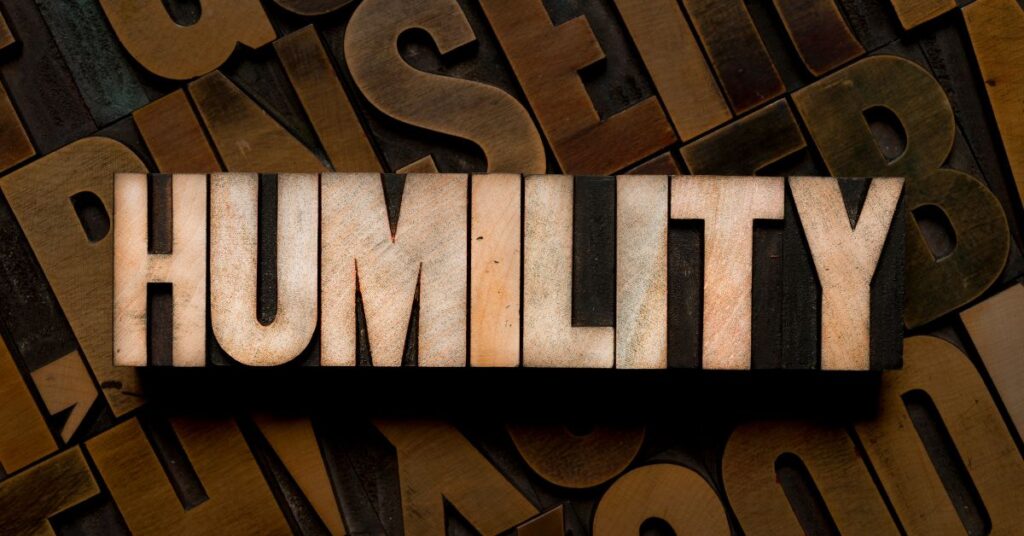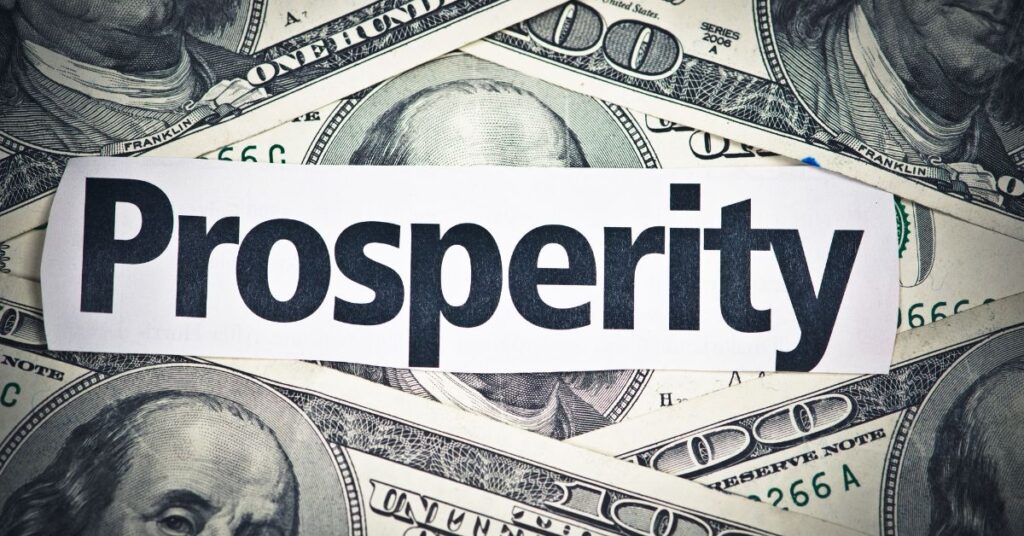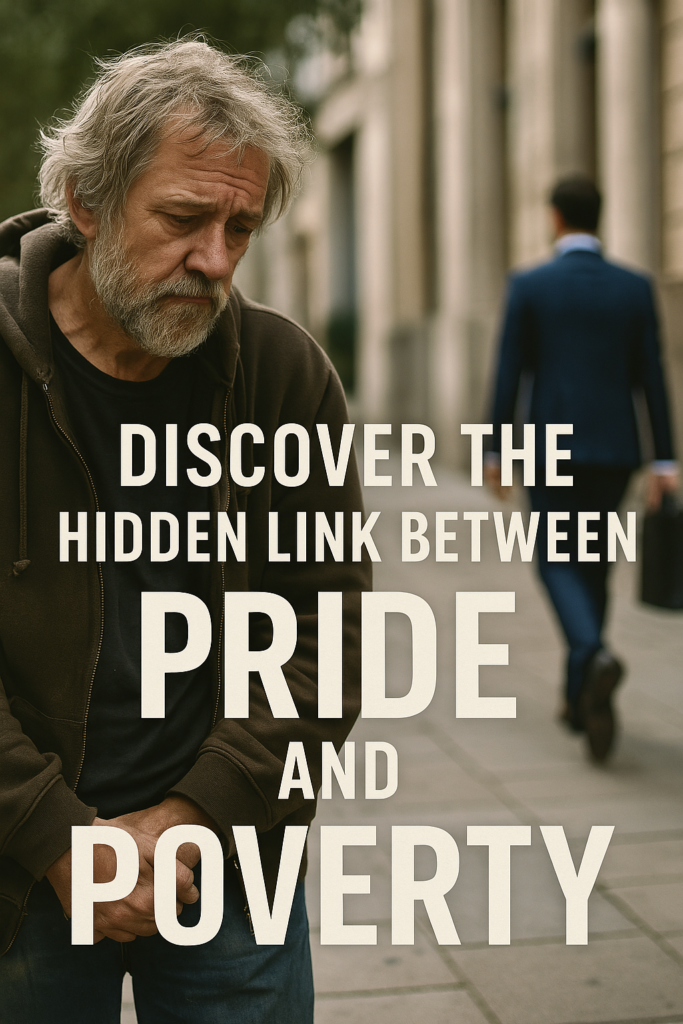Introduction
Poverty is often blamed on lack of education, limited opportunities, or even unfavorable government policies. But there’s a deeper, often overlooked factor that keeps many trapped in lack: pride. On the surface, pride may not seem connected to financial struggles. Yet, when we look closely, we find that pride influences mindset, attitude towards service, and openness to growth—all key ingredients for building lasting wealth.
The hidden link between pride and poverty lies in the posture of the heart. While the rich embrace humility and are willing to serve others, the poor often carry a silent entitlement, waiting to be served and refusing to start small. This isn’t just about money—it’s about mindset. A wealthy life begins with a willingness to let go of ego, take action, and align with principles that govern increase. As you’ll soon see, breaking free from poverty begins with a simple but powerful mindset shift.
Understanding Pride Beyond Appearances

When most people hear the word pride, they picture someone who refuses to greet others, brags about achievements, or walks with an inflated sense of self-importance. But the truth is, pride runs much deeper—and it’s often hidden in plain sight. To truly discover the hidden link between pride and poverty, we must first redefine what pride really is.
Pride isn’t always loud; sometimes, it’s silent. It’s not always about arrogance or boasting—it can show up in quiet resistance. A refusal to serve. An unwillingness to start small. A deep discomfort with being seen as less than. This form of pride is subtle, but deadly.
In many cases, pride disguises itself as dignity. People say, “I can’t do that, it’s beneath me,” or “I won’t stoop that low.” But in truth, that’s pride speaking—and it’s the very attitude keeping many stuck in lack. The poor often reject opportunities that require humility, forgetting that every wealthy person once served, learned, or sacrificed at some level.
It’s important to recognize how cultural narratives contribute to this mindset. In some environments, service is seen as weakness. Helping others without immediate reward is seen as foolish. But these beliefs are dangerous and misleading. They promote entitlement over empowerment, and ego over elevation.
True pride isn’t in how you greet—it’s in how you think. If your mind constantly says, “I deserve better without working for it” or “Someone should be helping me,” then you’re living in a prison built by pride. And that prison leads to poverty—not just financially, but emotionally and spiritually.
This is the part of the mindset conversation that many miss. The poverty mindset is not only about how much money you have—it’s about how you perceive work, service, growth, and humility.
If you want to explore how mindset plays a major role in poverty, this article on poverty and personal development by Psychology Today offers some scientific backing on the link between beliefs and financial status.
The Poverty Mindset and Its Dependence on Pride

To fully discover the hidden link between pride and poverty, we must dissect the mindset that keeps many trapped in cycles of lack. At the core of the poverty mindset lies an obsession with receiving rather than giving—a mentality of consumption over contribution.
The poor often wake up each day with a single question: Who will help me today? Whether it’s the government, relatives, friends, or divine intervention, the expectation is always external. This dependence is not just circumstantial—it’s deeply psychological and, most times, rooted in pride.
Here’s how.
Pride makes you believe you’re too good to start small, too important to serve, and too special to build. It tricks the mind into thinking that certain jobs or opportunities are beneath you. Instead of asking, “How can I help someone today?” the focus becomes, “Who will give me something today?”
People with a poverty mindset often pray, but not for growth or wisdom. They seek miracles, not mission. They want what’s in God’s hand, not what’s in His mind. This spiritual laziness is fueled by pride—it wants reward without responsibility, breakthrough without obedience.
This is the entitlement trap. It sounds like:
- “My family should help me more.”
- “I’ve suffered enough; life owes me.”
- “I deserve better without doing more.”
In contrast, the wealthy don’t ask, “What’s in it for me?” They ask, “What value can I create for others?” This fundamental difference is not about how much money is in the bank—it’s about how the mind is wired.
According to Harvard Business Review, the ability to reflect and reframe one’s mindset plays a significant role in personal growth and success. Those stuck in the poverty mindset rarely do this because pride blinds them to their own limitations.
When people cling to a consumer mentality, they consume everything: money, time, relationships, and even opportunities—without producing anything of lasting value. That’s not just poor thinking; it’s prideful thinking.
Service as the Gateway to Wealth

If there’s one principle that consistently separates the wealthy from the poor, it’s this: wealth follows service. To truly discover the hidden link between pride and poverty, you must understand that financial breakthrough begins where genuine service starts.
The rich don’t chase money—they solve problems. They don’t wait to be served—they serve. They wake up each day asking, “Whose life can I make better today?” That shift in thinking is the foundation of sustainable success.
Service is not a lowly act; it is the highest form of leadership. As Jesus said in Matthew 23:11-12 (NKJV):
“But he who is greatest among you shall be your servant. And whoever exalts himself will be humbled, and he who humbles himself will be exalted.”
This truth transcends religion—it is a timeless law of life and economics.
The world’s wealthiest individuals became rich because they built products, platforms, and systems that serve billions. Think of Jeff Bezos, Elon Musk, or even small business owners who solve local community needs. Their mindset? How can I serve at scale?
Pride, on the other hand, makes people too big to serve others but too small to build anything of value. It seeks attention, not impact. It prefers applause over action.
Those who cannot humble themselves to serve will struggle to generate wealth because the seed of wealth is planted in the soil of service.
Here’s the harsh truth:
You cannot be too proud to serve and expect to be rich.
You cannot focus only on receiving and expect abundance to flow through you.
Real wealth is a reward system. It rewards value creation, not emotional entitlement. Service forces you to learn, adapt, grow—and that growth is what builds income. If you’re broke, start serving. Not with the motive of instant gain, but with the mindset of planting seeds. Whether it’s volunteering, helping someone grow their business, or offering your skills generously—service multiplies your impact, and eventually, your income.
The Producer vs. Consumer Mentality

One of the most significant mindset differences between the rich and the poor lies in how they approach consumption and production. The poor often operate from a consumer mindset, while the wealthy think and act like producers.
A consumer focuses on what they can get—how much can I consume?—whether that’s money, food, attention, or resources. They believe that abundance comes from receiving, not giving. This mindset is rooted in scarcity; the belief that there is not enough to go around, so they must take whatever they can.
On the other hand, the rich think in terms of production. A producer asks, “What can I create to add value to the world?” They focus on how they can give more—whether it’s through business, intellectual property, art, or innovation. They understand that creating value and solving problems for others is the key to wealth.
The shift from being a consumer to being a producer is transformative. It is Ecclesiastes 11:1 that captures this truth perfectly:
“Cast your bread upon the waters, for after many days you will find it again.”
When you produce—whether it’s content, products, or services—you are essentially casting your bread. At first, it might feel like you’re putting out resources without immediate return. But just as the verse suggests, those efforts will eventually return to you, often multiplied, sometimes in ways you never expected.
Similarly, Luke 6:38 reinforces this idea:
“Give, and it will be given to you. A good measure, pressed down, shaken together and running over, will be poured into your lap. For with the measure you use, it will be measured to you.”
This passage reveals the profound law of giving and receiving. It emphasizes that the more you give, the more you will receive, and often in abundance. The producer understands this principle instinctively—they give value through their work, products, or services, and receive wealth and fulfillment in return.
The producer’s mindset understands that wealth isn’t about hoarding what you have; it’s about putting your talents, time, and resources out there for others to benefit from. The act of giving and creating becomes the gateway to receiving more. Whether you start with small acts of service or large-scale projects, the law of sowing and reaping remains constant.
The poor often focus only on receiving. They feel entitled to what others can give them, expecting society, family, or the government to fulfill their needs. But the wealthiest individuals are always focused on expanding what they have, on giving their best to the world, and watching it come back to them, often tenfold.
Becoming a producer isn’t just about making money. It’s about creating impact. And that’s where true wealth lies—not in what you can consume, but in what you can give and create.
Humility as a Wealth-Building Tool

Humility is often overlooked as a wealth-building tool, yet it is one of the most powerful principles that separates the rich from the poor. The poor often struggle with pride, entitlement, and a mindset of scarcity, believing that they deserve to receive without offering anything in return. The rich, on the other hand, understand that humility is the foundation of growth, success, and wealth.
Humility isn’t about thinking less of yourself; it’s about thinking of yourself less. It’s the recognition that service and giving are at the core of both personal and financial growth. When you humble yourself and focus on meeting the needs of others, you open the door for opportunities, relationships, and success to flow into your life. This is the mindset that attracts wealth.
The principle of humility is clearly articulated in Matthew 23:11-12:
“The greatest among you will be your servant. For whoever exalts himself will be humbled, and whoever humbles himself will be exalted.”
This scripture serves as a powerful reminder that true greatness comes from serving others. Humbling yourself—whether it’s through hard work, acts of service, or putting others’ needs before your own—creates a pathway to not only personal growth but also financial prosperity.
Wealth isn’t just about accumulating money—it’s about building value and serving others in a way that is humble yet impactful. When you focus on helping others succeed, you inherently succeed as well. The rich understand this and embrace humility as a tool for growth and abundance.
Humility allows you to take risks, to learn from others, and to adjust your course when necessary. It helps you see the value in others and understand that no one succeeds alone. It is through humility that the wealthy connect with people who can help them grow, find mentors, and create opportunities for both themselves and others. Humility removes the barriers of ego, which can prevent personal and financial growth, and opens the door to collaboration, networking, and learning from those who have gone before you.
The poor often have a hard time with humility. They may view it as a sign of weakness or inferiority, but in truth, it is the rich who possess the strength of humility. They know that to grow, they must serve first—whether it’s through their businesses, their relationships, or their communities.
A great example of this principle in action can be found in the lives of successful entrepreneurs like Tony Robbins or Oprah Winfrey. Both of them started from humble beginnings and built their fortunes through a mindset of service and humility. They didn’t chase after money; they focused on helping people, solving problems, and providing value. As a result, wealth followed them naturally.
Humility also plays a significant role in making wise financial decisions. It helps you recognize that you don’t have all the answers, and it encourages you to seek advice from others who have more experience. Being humble in your approach to wealth-building allows you to make smarter, more informed choices that lead to lasting financial success.
In essence, humility unlocks the door to wealth. When you adopt a humble mindset, you align yourself with the flow of abundance, and wealth follows as a natural byproduct of your service to others.
For more insights on how humility can drive success and wealth, check out this article on How Humility Can Boost Your Wealth-Building Journey.
The Mindset Shift – Moving from Pride to Prosperity

To truly experience prosperity, a mindset shift is required. Moving from a mentality rooted in pride, entitlement, and scarcity to one based on humility, service, and abundance will radically change the way you approach both your personal and financial life. The rich understand this fundamental truth: success comes from giving, not hoarding; from serving, not being served.
When you’re stuck in a mindset of pride, you see everything through a lens of self-interest. Your primary focus is on what’s in it for me? This mindset often leads to stagnation, dissatisfaction, and poverty because it’s impossible to grow when you’re focused on yourself. As you shift to a mindset of service, however, everything changes. The focus moves from self-serving to other-serving.
The key to breaking free from poverty is realizing that the world operates on law of sowing and reaping. The more you give, the more you receive—and not just financially. You receive in terms of personal growth, relationships, opportunities, and an increased capacity to impact the world around you.
Luke 6:38 says it clearly:
“Give, and it will be given to you. A good measure, pressed down, shaken together and running over, will be poured into your lap. For with the measure you use, it will be measured to you.”
This powerful scripture emphasizes the reciprocal nature of giving. When you shift your mindset from a consumer mentality to a producer mentality—when you focus on how you can serve others—the universe will respond in kind. The wealth you seek will come, not as a result of chasing money, but from a shift in perspective that invites abundance into your life.
Moving from pride to prosperity is not just about financial success—it’s about a holistic transformation. It’s about living a life that is fulfilling and meaningful, where your relationships, personal growth, and financial wealth are all in harmony. By embracing a service-oriented mindset, you begin to see the world as a place of endless opportunity, where you can contribute, grow, and prosper.
Conclusion
The hidden link between pride and poverty is clear: Pride holds you back, while humility propels you forward. If you want to move from poverty to prosperity, you need to adopt a mindset of service, humility, and abundance. As you begin to serve others and put the needs of those around you first, you will unlock doors to success and wealth that were once closed to you. The journey may not be easy, but it is undoubtedly worth it.
Start today. Shift your mindset. Let go of pride and embrace the power of service, and watch how the world begins to reward you in ways you never imagined.

